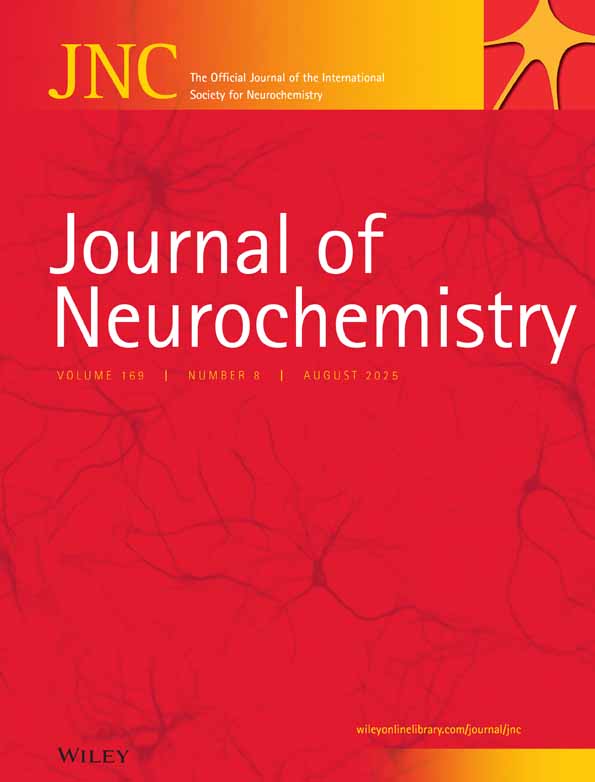EFFECTS OF ACUTE HYPERTHERMIA ON POLYRIBOSOMES, IN VIVO PROTEIN SYNTHESIS AND ORNITHINE DECARBOXYLASE ACTIVITY IN THE NEONATAL RAT BRAIN
Abstract—
—Acute hyperthermia produces in situ disaggregation of brain polyribosomes in infant rats, as determined by electron microscopy. Protein synthesis is inhibited in infant, but not weanling, rat brain by 45 min of hyperthermia; this inhibition is reversed during a 2 h recovery period at normothermic conditions. Hepatic protein synthesis was inhibited less than that of brain. Acute hyperthermia also leads to a profound loss of ornithine decarboxylase activity in brain; during recovery the activity of this enzyme overshoots to values greater than those of normothermic control rats. This increase is blocked by cycloheximide administration. In testis, a tissue with high ornithine decarboxylase activity, enzyme activity was not affected by hyperthermia and recovery, indicating tissue specificity for these effects.
Abbreviations used:
-
- PKU
-
- phenylketonuria




